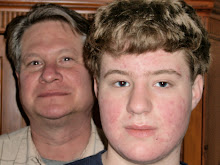
Proudly joining the ranks of the few human beings who have watched every Clint Eastwood movie brings an obligation to the species to share what we learned.
Taking literally minutes of deep study, we both compiled a list of our 15 favorite Clint movies. Using a point system, we boiled it down to this consensus Top 10 list.
10. “Sudden Impact”
9. “For a Few Dollars More”
8. “A Fistful of Dollars”
7. “Pale Rider”
6. “Unforgiven”
5. “Thunderbolt and Lightfoot”
4. “Dirty Harry”
3. “The Good, the Bad, and the Ugly”
2. “High Plains Drifter”
1. “The Outlaw Josey Wales”
We did not necessarily believe we like Clint's westerns best, but it’s impossible to deny with a list like that.
Even we were surprised “Sudden Impact” beat out so many great movies, including an Academy-award-winning best picture. Our best explanation is we find Sondra Locke convincing and compelling when she shoots men in the balls.
“Thunderbolt and Lightfoot” is ranked awfully high, but deserves it. It is an often-overlooked gem of Clint's career.
Many people would say we vastly over-rate “High Plains Drifter.” Well, that's our opinion.
No apology is needed for picking “The Outlaw Josey Wales” as number one. We have no doubt it would have been nominated for best picture, and perhaps won, if Clint made the same movie 20 years later when he was fashionable.
Watching every Clint Eastwood movie in chronological order is a stupid task only on the surface. We followed the path of Clint’s career once a week for more than a year and never tired of it.
We learned many things.
We learned Clint's habit of shooting dimly lit scenes gets annoying with repeated exposure. Several times, the screen was so dark we had difficulty determining exactly what was going on.
We learned the heart of Clint's skill as a movie maker — both before and after he was taken seriously — is story-telling. All his movies tell a story, and usually it’s an interesting story.
We learned Clint is a master at presenting heroes who are are not all good and antagonists who are not all bad. Sometimes the villains, like Scorpio in "Dirty Harry," are pure evil. But more often, they have good sides or are almost likable.
Most importantly, we learned the one consistent truth about Clint as a male icon is a deep sense of justice. This was completely missed by early critics who stupidly called his violent characters amoral. Clint was never amoral.
Thanks, Clint. This father and son will never forget the time we spent together with you, and that is a great gift.



